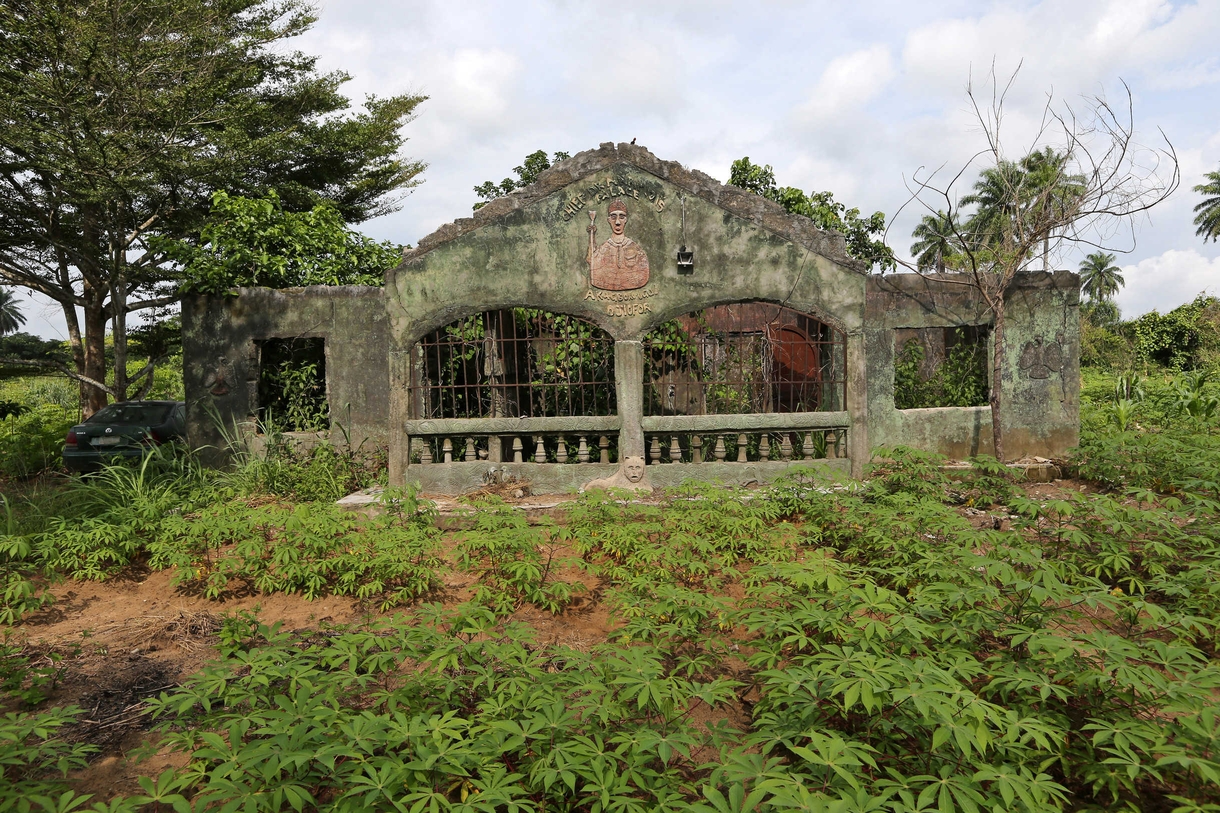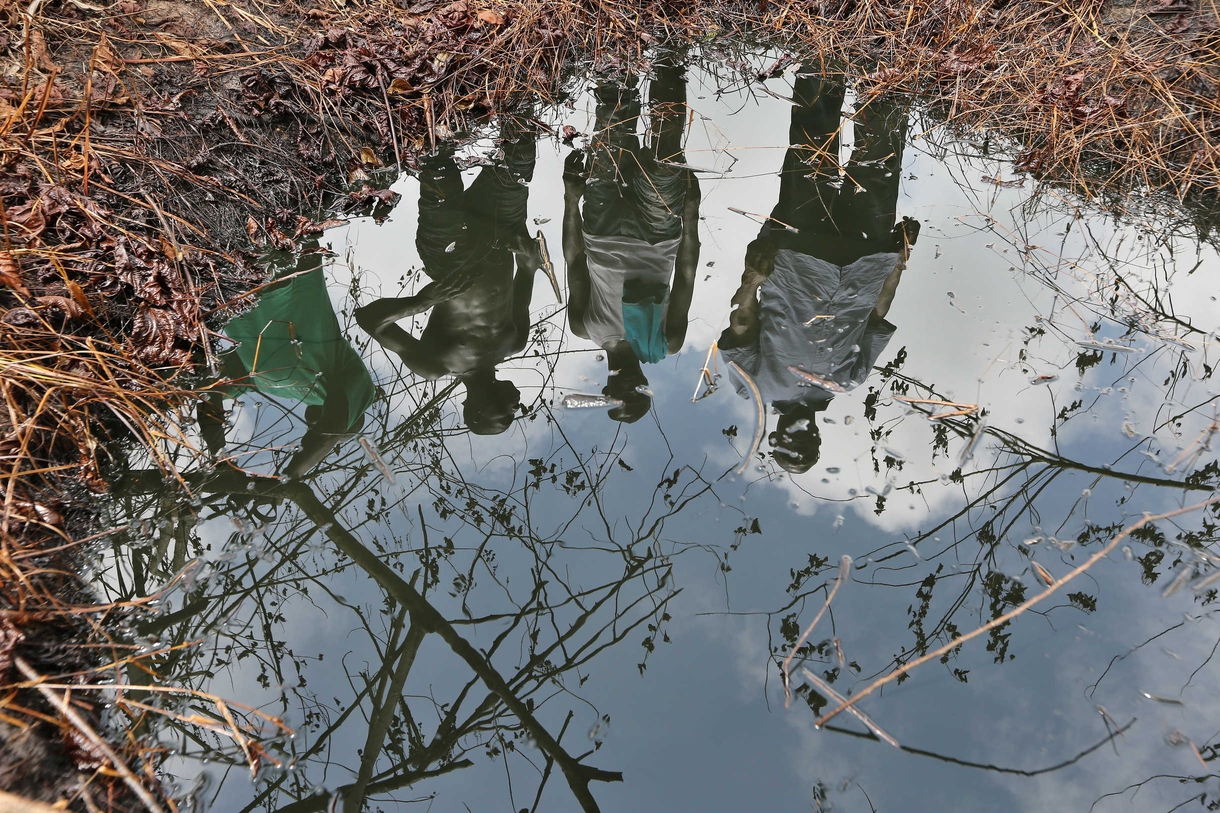Agricultural expert says finance for farmers would drive development.
Nearly six years of conflict has left the village of Imogu in ruins. Most of the buildings were destroyed, and everyone fled as men battled for political and military control of the area, and the power to manage money coming from oil companies operating in this part of the Niger Delta.

There are few jobs, so Florence Abua, an elderly mother of seven and grandmother of 10, says most everyone is farming for food to eat. She says she grows maize, vegetables, and yams. “We have nothing else to meet our needs,” she says.
With few options for jobs, and little money to rebuild their homes, farming is not just the only option, it is essential to feed a hungry family, explains Patience Nfarinwo, an unemployed agricultural extension worker with short hair and a broad smile. She used to work for the Ministry of Agriculture before the fighting drove her and her family away. She has not been able to work since 2007, and since returning has been growing maize and vegetables with her husband, hoping the government will hire her again.
Nfarinwo shows us her reconstructed home, behind a deep blue metal gate, where she has a motorbike she used to ride when she visited farmers in their fields to help them learn the latest farming techniques and opportunities to access markets . She also has a cassava mill, but ironically, no fuel to run it; it sits gathering dust next to her door.

Despite millions of barrels of oil passing by Imogu and the larger Rumeukpe community in pipelines destined for export, Nfarinwo says there is now virtually no investment in agriculture here. Funding to irrigate crops, support extension workers like Nfarinwo or help build strong markets and create jobs, has been scarce. She thinks it’s essential for the government to start supporting farmers again.
“People will be employed in agriculture, so they can earn a living, but if not, people have no skill,” she says. “We need to develop the youth, so they have some skills, and agriculture can revive this area.”
“When we produce food, it helps our community,” she says.
Farmers need finance

Nfarinwo sees one way for the government to support farmers: an affordable form of finance. “Farmers here need capital,” she says. “Without money we can’t do anything. They can’t access land, hire people to help them clear brush…they can’t even start. It’s all about money.”
Nfarinwo says information about how much the oil companies in Rumuekpe are paying the Nigerian federal government might help farmers get some more support. “Knowing how much money they get from oil companies, we can then ask them to develop our agricultural land so we can earn a living, employ farmers, and have food to eat,” she says. “And people can start their lives again.”
Help communities in the Niger Delta and other oil-producing areas to get the money they need to so small-scale farmers can grow more food for their families and earn a decent living.
